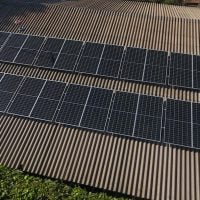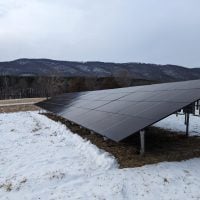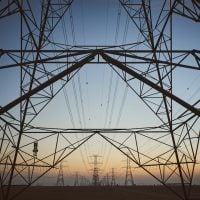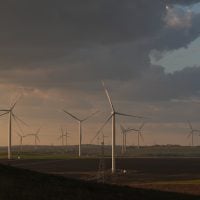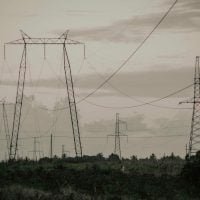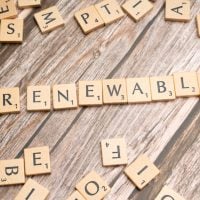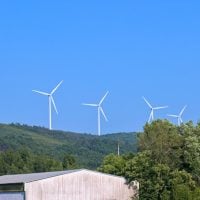In the contemporary landscape of environmental sustainability, renewable energy grants play a pivotal role in fostering innovation and supporting projects that aim to reduce carbon footprints. These grants are essential for non-governmental organizations (NGOs) and other entities seeking to implement renewable energy solutions, as they provide the necessary financial backing to develop and deploy technologies such as solar, wind, and bioenergy. The significance of these grants extends beyond mere funding; they represent a commitment to a sustainable future, enabling organizations to contribute to global efforts against climate change while also promoting energy independence.
Moreover, renewable energy grants often come with additional benefits, such as networking opportunities and access to resources that can enhance project viability. For NGOs, securing these grants can lead to increased credibility and visibility within the community and among stakeholders. By successfully obtaining funding, organizations can not only implement their projects but also inspire others to follow suit, creating a ripple effect that amplifies the impact of renewable energy initiatives.
Understanding the importance of these grants is the first step toward harnessing their potential for transformative change. Are You Working on Solar Innovation or Clean Energy Access? Join us to receive updates.
Researching Available AI Tools for Renewable Energy Grants
As the landscape of grant applications evolves, so too does the technology that supports it. Artificial Intelligence (AI) tools have emerged as invaluable resources for NGOs seeking renewable energy grants. These tools can streamline the research process, making it easier to identify available funding opportunities tailored to specific projects.
By leveraging AI, organizations can sift through vast databases of grants, filtering results based on criteria such as project type, funding amount, and eligibility requirements. When researching AI tools, it is crucial to consider their features and capabilities. Some platforms offer comprehensive databases that aggregate information from various funding sources, while others provide advanced analytics to help organizations understand trends in grant funding.
Additionally, user-friendly interfaces and customizable search options can significantly enhance the user experience. By investing time in exploring these tools, NGOs can equip themselves with the knowledge needed to navigate the complex world of renewable energy grants effectively.
Utilizing AI Tools to Identify Eligibility Criteria
One of the most challenging aspects of applying for renewable energy grants is understanding the eligibility criteria set forth by funding organizations. AI tools can simplify this process by automatically analyzing grant descriptions and extracting relevant information regarding eligibility requirements. This capability allows NGOs to quickly determine which grants align with their projects, saving valuable time and resources.
For instance, an AI tool might highlight specific criteria such as geographic restrictions, project size limitations, or required partnerships. By providing a clear overview of eligibility requirements, these tools enable organizations to focus their efforts on grants that are most likely to yield positive outcomes. Furthermore, this targeted approach minimizes the risk of applying for grants that may not be suitable, ultimately increasing the chances of securing funding.
Streamlining the Application Process with AI Tools
The grant application process can often be cumbersome and time-consuming, requiring meticulous attention to detail and adherence to strict guidelines. AI tools can significantly streamline this process by automating various tasks involved in preparing applications. For example, some platforms offer templates that guide users through each section of the application, ensuring that all necessary information is included and formatted correctly.
Additionally, AI tools can assist in managing documentation by organizing files and tracking revisions. This level of organization not only enhances efficiency but also reduces the likelihood of errors that could jeopardize an application’s success. By leveraging these technologies, NGOs can allocate more time to refining their project proposals and less time on administrative tasks, ultimately improving their chances of receiving funding.
Leveraging AI Tools to Track Deadlines and Requirements
In the fast-paced world of grant applications, keeping track of deadlines and specific requirements is crucial for success. Missing a deadline or failing to meet a requirement can result in disqualification from consideration, which is why AI tools that offer deadline tracking capabilities are invaluable. These tools can send reminders and alerts about upcoming deadlines, ensuring that organizations stay on top of their applications.
Moreover, some AI platforms allow users to create customized calendars that integrate grant deadlines with other project timelines. This holistic approach enables NGOs to manage their resources effectively and prioritize tasks accordingly. By leveraging these tracking features, organizations can maintain a proactive stance in their grant application efforts, ultimately leading to more successful outcomes.
Analyzing Data and Trends with AI Tools for Grant Opportunities
Understanding data and trends in grant funding is essential for NGOs looking to secure renewable energy grants. AI tools equipped with data analytics capabilities can provide insights into funding patterns, helping organizations identify which types of projects are receiving support and from which sources. This information can be instrumental in shaping project proposals that align with current funding priorities.
For example, an analysis might reveal a growing interest in solar energy projects within a specific geographic region or among certain funding bodies. By recognizing these trends early on, NGOs can tailor their proposals to meet the evolving demands of funders. Additionally, data analysis can help organizations assess their competition and identify gaps in the market that they can exploit for greater chances of success.
Customizing Search Parameters for Specific Renewable Energy Projects
Every renewable energy project is unique, and so are its funding needs. AI tools allow NGOs to customize search parameters based on specific project characteristics, such as technology type, target audience, or geographic location. This level of customization ensures that organizations receive relevant results tailored to their particular initiatives.
For instance, an NGO focused on developing wind energy solutions in rural areas can set parameters that filter out unrelated grants while highlighting those specifically aimed at rural development or renewable energy innovation. This targeted approach not only saves time but also increases the likelihood of finding suitable funding opportunities that align with project goals.
Maximizing Efficiency and Accuracy with AI Tools in Grant Searching
Efficiency and accuracy are paramount when searching for renewable energy grants. AI tools enhance both aspects by automating repetitive tasks and providing precise results based on user-defined criteria. By utilizing these technologies, NGOs can conduct thorough searches without becoming overwhelmed by the sheer volume of available information.
Furthermore, AI tools often incorporate machine learning algorithms that improve over time based on user interactions. This means that as organizations continue to use these platforms, they become increasingly adept at delivering relevant results tailored to specific needs. By maximizing efficiency and accuracy in grant searching, NGOs can focus their efforts on developing compelling proposals rather than getting lost in the minutiae of grant databases.
Collaborating with AI Tools to Identify Potential Funding Sources
Collaboration is key in the nonprofit sector, especially when it comes to securing funding for renewable energy projects. AI tools can facilitate collaboration by connecting NGOs with potential funding sources that align with their mission and objectives. These platforms often feature networking capabilities that allow organizations to engage with funders directly or share insights with other NGOs working on similar initiatives.
By collaborating with AI tools, NGOs can expand their reach and discover new funding opportunities they may not have encountered otherwise. For example, an organization focused on solar energy might connect with a foundation dedicated to environmental sustainability through an AI platform that highlights mutual interests. This collaborative approach not only enhances funding prospects but also fosters partnerships that can lead to innovative solutions in renewable energy.
Navigating the Complexities of Renewable Energy Grant Applications with AI Tools
The complexities involved in renewable energy grant applications can be daunting for many NGOs. From understanding intricate guidelines to compiling extensive documentation, the process often requires specialized knowledge and expertise. AI tools can serve as valuable allies in navigating these complexities by providing guidance throughout each stage of the application process.
For instance, some AI platforms offer step-by-step instructions tailored to specific grant applications, breaking down requirements into manageable tasks. Additionally, these tools may include resources such as FAQs or forums where users can seek advice from peers or experts in the field. By leveraging these resources, NGOs can demystify the application process and enhance their chances of success.
Integrating AI Tools into a Comprehensive Renewable Energy Grant Strategy
To fully harness the potential of AI tools in securing renewable energy grants, NGOs should integrate them into a comprehensive grant strategy. This strategy should encompass all aspects of grant seeking—from research and application preparation to tracking deadlines and analyzing trends. By adopting a holistic approach that incorporates AI technologies at every stage, organizations can optimize their efforts and increase their likelihood of securing funding.
Furthermore, continuous evaluation of both the strategy and the effectiveness of AI tools is essential for long-term success. Organizations should regularly assess which tools are delivering the best results and adjust their strategies accordingly. By remaining adaptable and open to new technologies, NGOs can stay ahead in the competitive landscape of renewable energy funding while making meaningful contributions toward a sustainable future.
In conclusion, renewable energy grants represent a vital resource for NGOs committed to advancing sustainable practices. By understanding their importance and leveraging AI tools effectively throughout the grant-seeking process, organizations can enhance their chances of securing funding while maximizing efficiency and impact. As technology continues to evolve, embracing these innovations will be crucial for driving progress in renewable energy initiatives worldwide.
In the quest to secure funding for renewable energy projects, leveraging AI tools can significantly streamline the process of identifying suitable grants. A related article that might be of interest is the Call for LOIs: Large and Small Grants in Ecuador. This article provides insights into available funding opportunities in Ecuador, which could be beneficial for organizations looking to expand their renewable energy initiatives in the region. By utilizing AI tools, applicants can efficiently sift through such opportunities, ensuring they meet the specific criteria and deadlines, ultimately enhancing their chances of securing the necessary funding.




